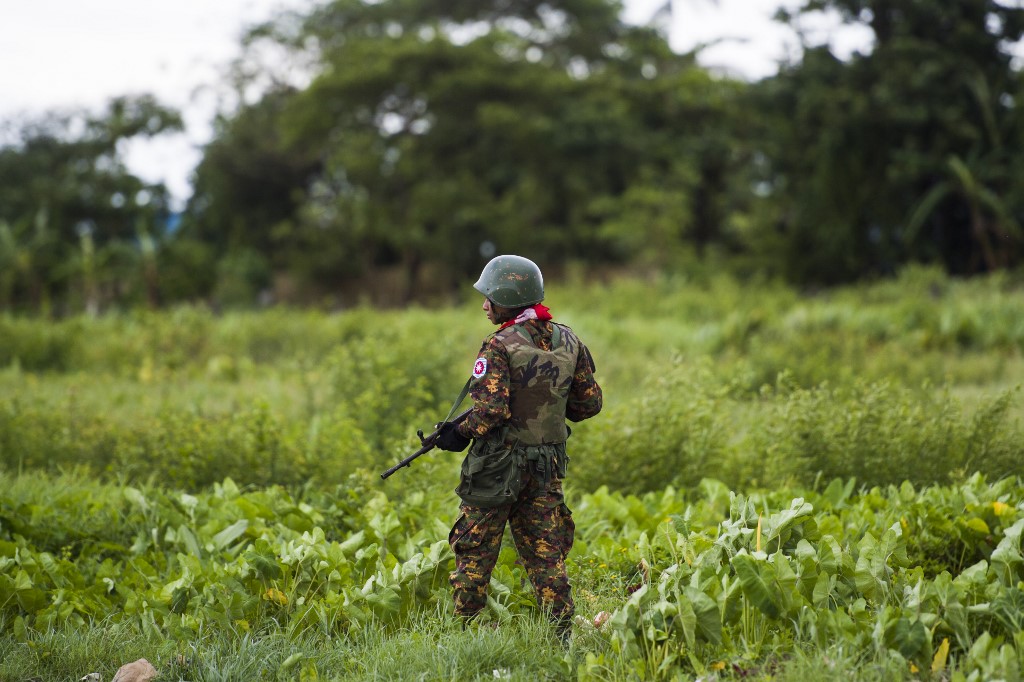
Myanmar's apparent continued targeting of civilians in Rakhine and Chin states could constitute additional war crimes and crimes against humanity, the UN rights chief said Monday.
Michelle Bachelet demanded action to remedy the serious rights violations suffered by Myanmar's Rohingya minority in particular.
Military operations in 2017 forced some 750,000 Rohingya to flee from conflict-torn Rakhine state to Bangladesh in violence that now sees Myanmar facing genocide charges at the UN’s top court.
Speaking at the opening of the 45th Human Rights Council in Geneva, Bachelet decried that the abuses against the Rohingya and other minorities in the country were ongoing.
"People from the Rakhine, Chin, Mro, Daignet and Rohingya communities are increasingly affected by the armed conflict in Rakhine and Chin states," Bachelet said.
She pointed to "disappearances and extra-judicial killings of civilians; massive civilian displacement; arbitrary arrests, torture and deaths in custody; and the destruction of civilian property."
"Civilian casualties have also been increasing. In some cases, they appear to have been targeted or attacked indiscriminately, which may constitute further war crimes or even crimes against humanity," she said.
The UN High Commissioner for Human Rights lamented that no concrete measures had been taken by the government towards accountability for the "terrible human rights crisis" inflicted upon the Rohingya by the military operations in Rakhine which started three years ago.
Bachelet said government administrators were now reclassifying areas where Rohingya villages were previously located, removing the names of villages from official maps and potentially altering how the land may be used.
"This should end immediately, and the prior situation should be restored," she said.
'Hate speech'
Satellite images and eye-witness accounts indicate that areas in northern Rakhine have been burnt in recent months—something contested by the government, Bachelet added.
"This only underscores the need for independent, on-the-ground investigation," she said.
Myanmar's military has always justified its 2017 operations as a means to root out Rohingya militants after attacks against around a dozen security posts and police stations.
The Rohingya are widely seen as illegal immigrants in Myanmar, denied citizenship and rights.
Bachelet highlighted that most Rohingya will not be able to vote in the forthcoming November elections, branding the situation as "disappointing".
"The vast majority of Rohingya will be prevented from participating in the elections, since they have effectively been stripped of their previously recognised rights to vote and stand for office," she said.
"Action must now be taken to properly remedy the serious violations the Rohingya have suffered, and include them into the life of their country.
"I also encourage the government to remove the barriers that impede democratic freedoms and undermine the equal enjoyment of human rights by all in Myanmar."

